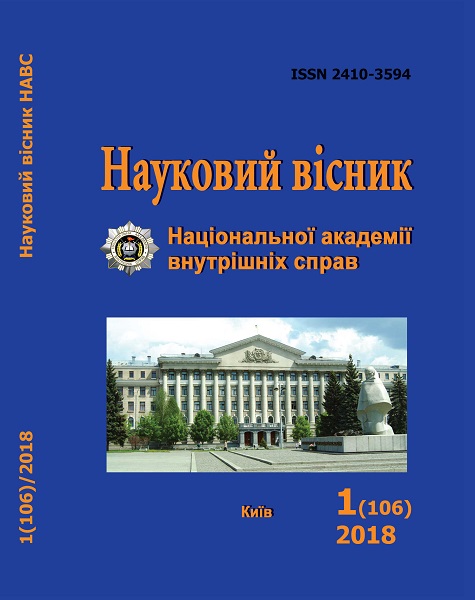Legal Conditions for Conducting of Psychophysiological Research Using a Polygraph in Criminal Proceedings
Abstract
According to the article, the possibility of using a polygraph in criminal proceedings has been studied for several decades, but this method is still very difficult to implement. Discussions about the procedural forms and the Importance of Proving of the use of the polygraph in the pre-trial investigation does not lose relevance Among the scholars, so these issues will require further study and legislative adjustments. The article examines the legal and applied aspects of conducting psychological research with the use of a polygraph in criminal proceedings by analyzing practices and regulatory acts, which determine the policy and procedures for their functioning. It is spoken in detail about the role and place of forensic examination using the polygraph in carrying out the tasks of criminal proceedings in accordance with the general principles, in particular, providing of the right to advocacy, freedom from
self-disclosure, adversarial parties, the freedom to submission
of evidence in court, and in proving their persuasiveness
to the court, etc.
polygraph in the field of combating crime in general and in the anti-corruption direction, in particular, confirmed by practice and numerous foreign and domestic scientific research. Over the past few years, the demand for conducting researches, using the computer polygraph in judicial, investigative and operational, lawyer activities has increased significantly and continues to grow. Ukrainian society is ready to embranchment the necessity of introducing «lie detection» into the practice of criminal and civil proceedings, selection of personnel for important post of state bodies.
At the same time, the introduction of international industry standards in Ukraine, designed developed by ASTM International, will prevent the use of devices, methods and techniques that have not been sufficiently approbated and are characterized by
high accuracy and reliability of the results–polygraph
examiners, psychologists, lawyers, law enforcement officers, doctors and others.
Downloads
Abstract views: 75 PDF Downloads: 43
- Authors reserve the right to authorship of their own work and transfer to the magazine the right of the first publication of this work under the terms of the Creative Commons Attribution License, which allows other persons to freely distribute published work with mandatory reference to authors of the original work and the first publication of an article in this magazine.
- Authors have the right to enter into separate additional agreements on non-exclusive dissemination of the work in the form in which it was published in the journal (for example, to post an article in the institution's repository or to publish as part of a monograph), provided that the link to the first publication of the work in this journal is maintained.
- The journal's policy allows and encourages the posting of articles by authors on the Internet (for example, in electronic storehouses of institutions or on personal websites), both before the submission of this manuscript to the editorial office and during its editorial processing, as this contributes to the creation of a productive scientific discussion and positively affects the efficiency and dynamics of citing the published work.




